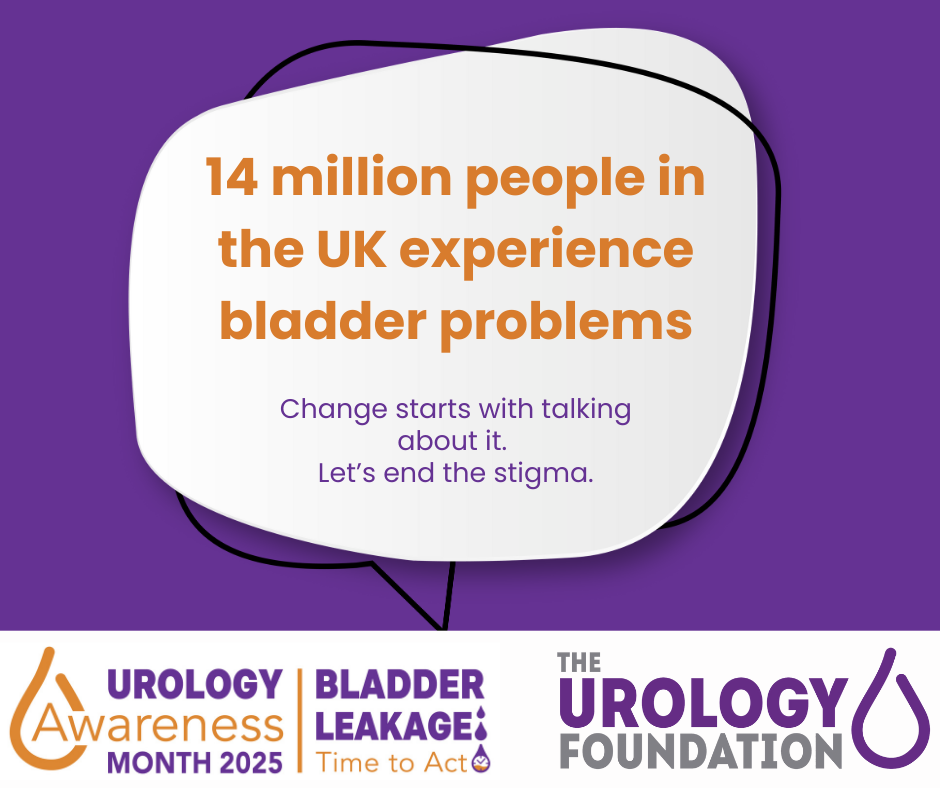September marks Urology Awareness Month in the UK. This initiative, led by The Urology Foundation, aims to highlight conditions that affect the kidneys, bladder, prostate, and reproductive system. It’s an important time to raise awareness, break down stigma, and encourage people to seek help early.
For many individuals, urological conditions can affect daily life and independence. As care providers, we recognise how important it is to offer discreet and compassionate care at home, helping people manage their health while preserving dignity and comfort.
Understanding Urological Health
Urology covers a wide range of health issues, and whilst half of us will experience a urological condition at some point in our lives, it’s still something people find difficult to talk about due to fear of embarrassment or societal stigmas.
Furthermore, topics like bladder control, urinary frequency, or prostate problems are often dismissed as an inevitable part of ageing and something to live with rather than a treatable medical issue.
So what are the most common issues that fall under urological health?
- Urinary incontinence – difficulty controlling the bladder.
- Prostate problems – including prostate enlargement or prostate cancer.
- Bladder and kidney infections – which can cause pain, frequent urination, and fatigue.
- Kidney stones – hard deposits that can cause severe discomfort.
- Pelvic floor dysfunction – affecting bladder control and quality of life.
Spotting the Signs
Early diagnosis makes a huge difference. Being aware of the signs can help you or a loved one get the right support quickly. Symptoms to look out for include:
- Needing to urinate more often, especially at night.
- Pain, burning, or discomfort when passing urine.
- Blood in the urine.
- Difficulty starting or stopping urination.
- Loss of bladder control or leakage.
If you notice any of these changes, it’s important to speak with a GP or healthcare professional.
Living with Urological Conditions at Home
Urological issues can be difficult to talk about, and many people feel embarrassed asking for help. But with the right support, it’s possible to live comfortably and confidently at home.
Home care can make a real difference by providing:
- Discreet personal care – respectful support with washing, dressing, and continence management.
- Medication support – reminders and assistance to stay on top of prescribed treatments.
- Hydration and nutrition routines – encouraging healthy habits that can ease symptoms.
- Mobility support – helping people stay active and independent.
- Emotional reassurance – offering compassionate, non-judgemental care.
How Families and Carers Can Help
If you’re supporting a loved one, you can play a key role in maintaining their well-being:
- Encourage open conversations – removing embarrassment and stigma.
- Support appointments – help with booking and attending GP or hospital visits.
- Promote healthy habits – including regular fluid intake, a balanced diet, and gentle exercise.
- Learn about pelvic floor health – simple exercises can make a big difference for bladder control.
Compassionate Support at Home
At Premier Community, we believe that everyone deserves to feel comfortable, respected, and supported, especially when managing personal health challenges. Our experienced carers provide confidential and dignified support to help people live well at home.
If you or a loved one are living with a urological condition and would like to explore how home care can help, please get in touch with our friendly team today.




